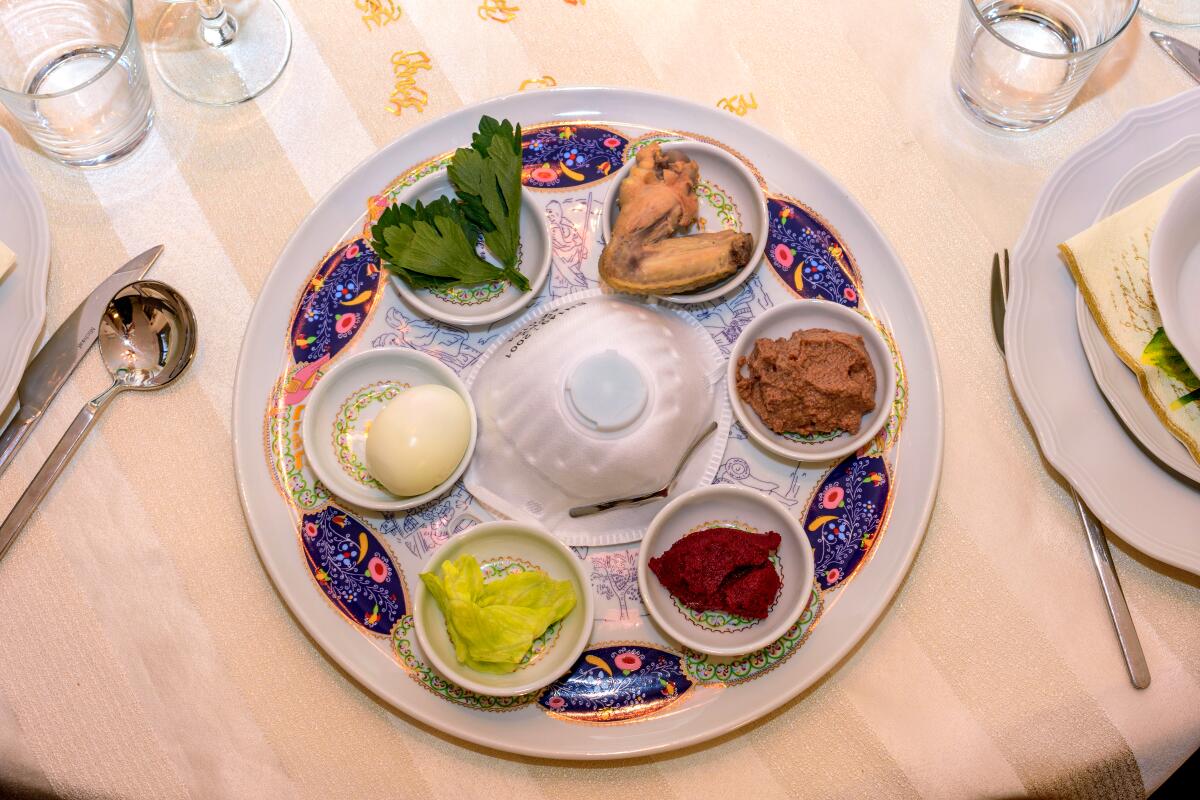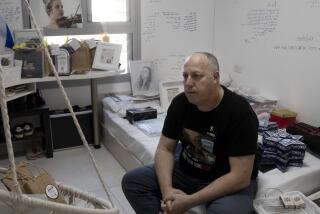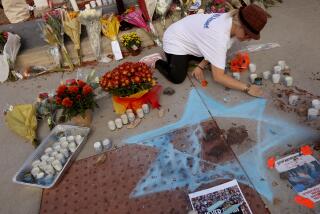Op-Ed: Why you should celebrate Passover this year — even if you’re not Jewish

On Saturday evening, Jews all over the world will sit down at their dining tables to celebrate Passover.
This year, you might want to do the same.
Do not find the nearest Jewish home and crash the Seder — that could go horribly wrong. But a year into the pandemic, there is something about the holiday that everyone — Jewish, non-Jewish, religious, anti-religious — can find powerful and important. Even if you’re not Jewish, you should still do something Passover-ish.
On Passover, Jews recount the biblical story of our enslavement in Egypt and our liberation, or exodus, into freedom. Together we read the Passover liturgy, the Haggadah, and eat and drink symbolic foods to remember what our forebears experienced.
We eat matzo — unleavened bread — to recall the hardship of oppression and how we had to flee our oppressors before our bread could rise. We eat horseradish or chicory to recall the bitterness of slavery and haroset, a thick fruit and nut mixture, to remind us of the mortar we used as Pharaoh’s slaves. We dip greens in salt water to recall our tears.
I wasn’t actually a Jewish slave in Egypt in the murky, perhaps even mythologized, past, but I still find myself writing “ours” not “theirs.” That’s the power of the Passover Seder: It collapses the present into the past, making what’s old relevant again. A rabbinic commentary we read at Passover explains it this way: “In every generation each person is obligated to see themselves as though they too came out from Egypt.”
Last year was our first pandemic Passover. We celebrated the holiday over Zoom, unable to imagine the enormity of the loss and hardship the coronavirus, and our nation’s inadequate response to it, would bring: More than 500,000 dead, a nation stifled by lockdowns, mass economic suffering.
We are now, hopefully, more out of this pandemic than in it. The streets of L.A. are re-clogging with traffic, schools and businesses are opening their doors, vaccinations are rising and hospitalizations declining. Soon, something close to what was will be again. And that means we are going to forget, because Americans forget.
Dec. 7, 1941, when 2,390 Americans lost their lives in a surprise attack on Pearl Harbor, was the “date which will live in infamy.” But the more time passes, the more it’s just Dec. 7.
Today’s college seniors were 1 year old when the 9/11 attacks killed nearly 3,000 people. One young woman who was a toddler in 2001 told the Voice of America that she constantly confuses 9/11 with the 2003 blackouts that shut down the Northeast. Remember all those banners and T-shirts that read “We Will Never Forget”? Americans soon will.
But Passover doesn’t let you forget.
Each year we sit and tell the story of the journey from slavery to freedom. Each year the matzo. Each year the traditional songs. At our Seder table one year, a friend who had upset his wife leaned over and asked me in a whisper if I thought she’d ever forgive him. “I don’t know,” I said. “She’s still mad at Pharaoh.”
It’s not just about memory. The Passover Seder invites us, through questioning, to give memory meaning. During the Civil War, Jewish soldiers on the Union side who celebrated the Seder in field tents spoke of themselves as actors in the story, leading the slaves to freedom. Some Seder plates now feature a very nontraditional orange, to symbolize the LGBTQ community’s struggle for freedom. And this year, tens of thousands of Jews will include new passages in their Haggadahs about the Uyghur minority in Northern China, facing enslavement and genocide even as we celebrate.
Telling and retelling and refreshing a common story is at the core of Jewish resilience. In his book “The Secrets of Happy Families,” Bruce Feiler points out that families can withstand almost any setback if they can transform it and share it into a common story.
“The single most important thing you can do for your family may be the simplest of all,” he wrote in a New York Times essay about his book, “develop a strong family narrative.”
That’s what makes Passover the ideal almost-post-pandemic ritual. It combines the powerful elements of story, food, music and togetherness to both mark and give meaning to history.
Whatever your faith, or lack thereof, consider marking the beginning of the end of COVID-19 with a Passover-like ritual. Gather at a table with people you care about, in person or virtually. Read poems, short passages, the names of those who’ve died, ask and answer questions about the year we survived, and sing songs and eat foods that bring back memories and create comfort. Use Passover’s form to serve a crucial function.
This won’t make you Jewish any more than sitting in a Zen garden for an hour makes you Buddhist. But the pain, the triumphs and the lessons of the past year are too important to be forgotten. Let my People help your people remember.
Rob Eshman is national editor of the Forward. @foodaism.
More to Read
A cure for the common opinion
Get thought-provoking perspectives with our weekly newsletter.
You may occasionally receive promotional content from the Los Angeles Times.






